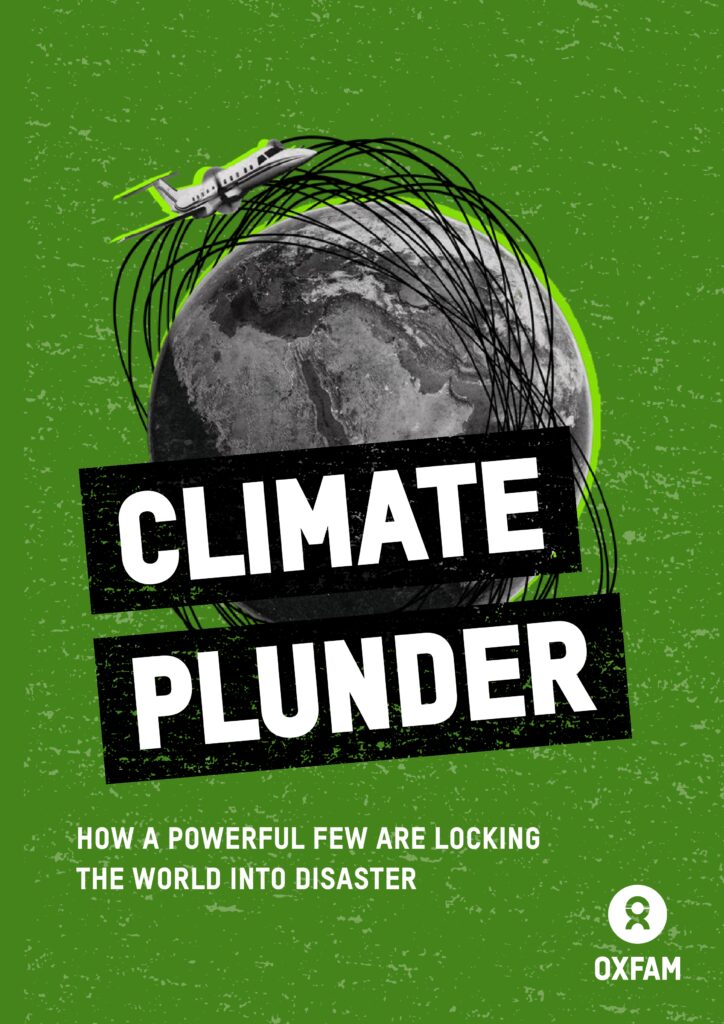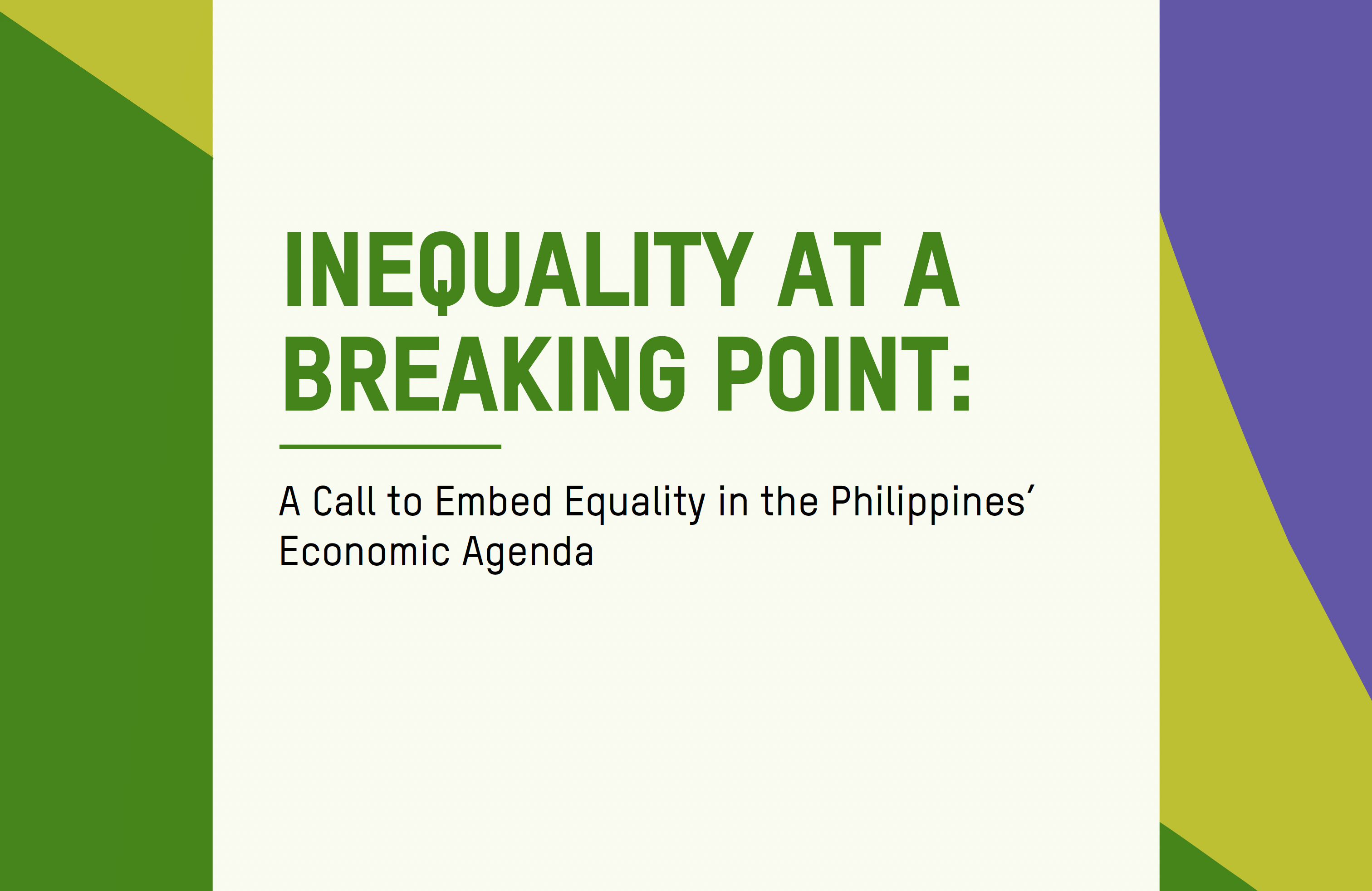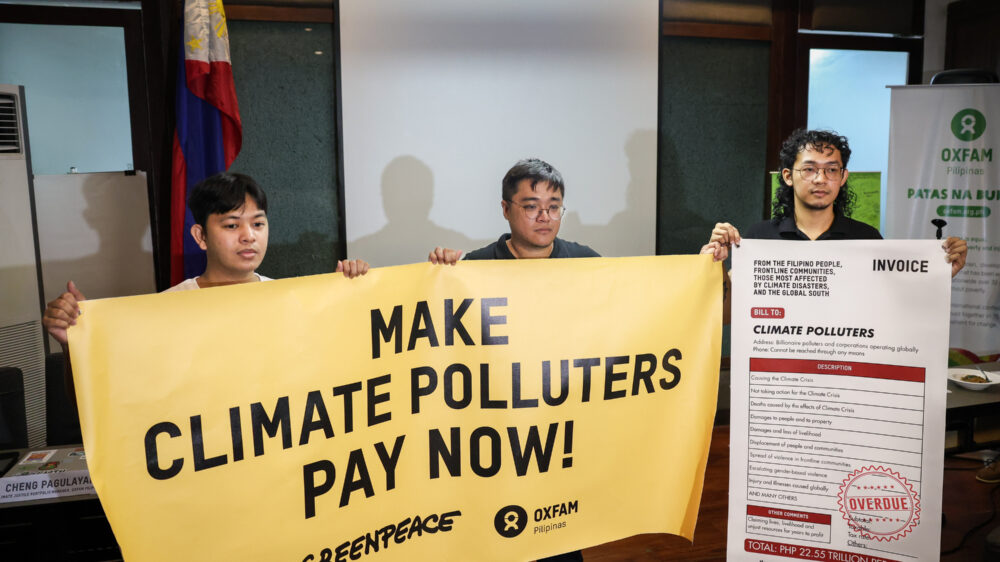A new Oxfam study has revealed that the world’s richest 0.1% produce more carbon emissions in a single day than the poorest 50% generate all year. It warned that if everyone emitted like the richest 0.1%, humanity would exhaust the world’s carbon budget in under three weeks.
The report, titled “Climate Plunder: How a powerful few are locking the world into disaster,” investigates how the super-rich account for more carbon emissions than the rest of the world using data spanning 1990 to 2022, and threaten climate targets. The findings come ahead of the 2025 United Nations Climate Change Conference (COP30) in Brazil, casting urgent light on the role the world’s wealthiest play in driving the climate crisis.
Data shows the richest 0.1% generate 800 kg of CO2 daily—equivalent to the weight of a small car—while the poorest 50% emit just 2 kg—equivalent to a large bottle of water. Since 1990, the richest 0.1% have increased their share of global emissions by 32%, while the share of the poorest half of humanity has fallen by 3%.
“The worsening climate crisis is an inequality crisis. Our report shows that the world’s wealthiest are amassing not only wealth but also political power that influences decisions and drives us all deeper into climate destruction,” said Cheng Pagulayan, Oxfam Pilipinas Climate Justice Portfolio Manager.
The report, Climate Plunder: How a powerful few are locking the world into disaster, presents extensive new updated data and analysis, which revealed that a person from the richest 0.1% produces more carbon pollution in a day than the poorest 50% emit all year. If everyone emitted like the richest 0.1%, the carbon budget would be used up in less than 3 weeks.
The study also found that the average billionaire’s investments produce 1.9 million tons of CO2 a year, equal to almost 10,000 private jet trips around the world. Notably, 60% of billionaire investments are in high climate-impact sectors like oil or mining, emitting 2.5 times more than an average investment in the S&P Global 1,200. The investment portfolios of just 308 billionaires produced more emissions than those of 118 countries combined.
Oxfam warns that to limit global warming to the Paris Agreement target of 1.5°C, the richest 0.1% must cut their per capita emissions by 99% by 2030. Without drastic action, the emissions of the richest 1% are enough to cause an estimated 1.3 million heat-related deaths by the end of the century. They could also cause $44 trillion economic damage to low- and lower-middle-income countries by 2050.
“In the Philippines, billions earmarked for flood control have reportedly been diverted into ghost and substandard projects—leaving people and communities vulnerable many times over to intensifying storms, floods, and other disasters. That is climate plunder in practice: public resources meant to reduce climate risk are captured by a powerful few, worsening vulnerability for the ordinary Filipinos,” Pagulayan added.
The research also exposes how the super-rich leverage their wealth and influence to weaken climate policies and negotiations. At the last UN Climate talks (COP29), 1,773 coal, oil, and gas lobbyists were granted badges, outnumbering delegates from the 10 most climate-vulnerable nations.
It added that the impacts of these climate damages will disproportionately impact those who have done the least to cause the climate crisis, particularly people living in the Global South, women, girls, and Indigenous groups.
As COP30 approaches, Oxfam urges governments to cut emissions and dismantle the political and economic power of the super-rich through:
- Slashing the emissions of the super-rich and making the richest polluters pay, through taxation on extreme wealth, excess profits taxes on fossil fuel corporations, and supporting the UN Convention on International Tax Cooperation.
- Curbing the economic and political influence of the richest by banning fossil fuel corporations from climate negotiations such as COP, implementing sustainability regulations for corporations and financial institutions, and rejecting trade and investment agreements that put the interests of the super-wealthy above public good.
- Strengthening the participation of civil society and Indigenous groups in climate negotiations and addressing the unequal impacts of climate change.
- Adopting a fair-share approach to the remaining climate budget by committing to the Nationally Determined Contributions (NDCs)—countries’ target for reducing emissions and adapting to impacts of climate change—that reflect historical responsibility and capacity to act, and ensuring rich countries deliver ambitious climate finance.
- Building an equal economic system that puts people and planet first by rejecting dominant neoliberal economics and moving towards an economy grounded in sustainability and equality.
Notes to editors:
Download Climate Plunder: How a powerful few are locking the world into disaster and the methodology note.
Visit the Stockholm Environment Institute’s Emissions Inequality Dashboard for the latest emissions data by income group for over 190 countries.
Oxfam has launched a global petition to Make Rich Polluters Pay.
About Oxfam Pilipinas
Oxfam Pilipinas is a rights-based, feminist organization working toward an equal and just future for all. It is part of the Oxfam International confederation of 22 organizations networked together in over 70 countries.
For media inquiries, please email communications@oxfam.org.ph.




